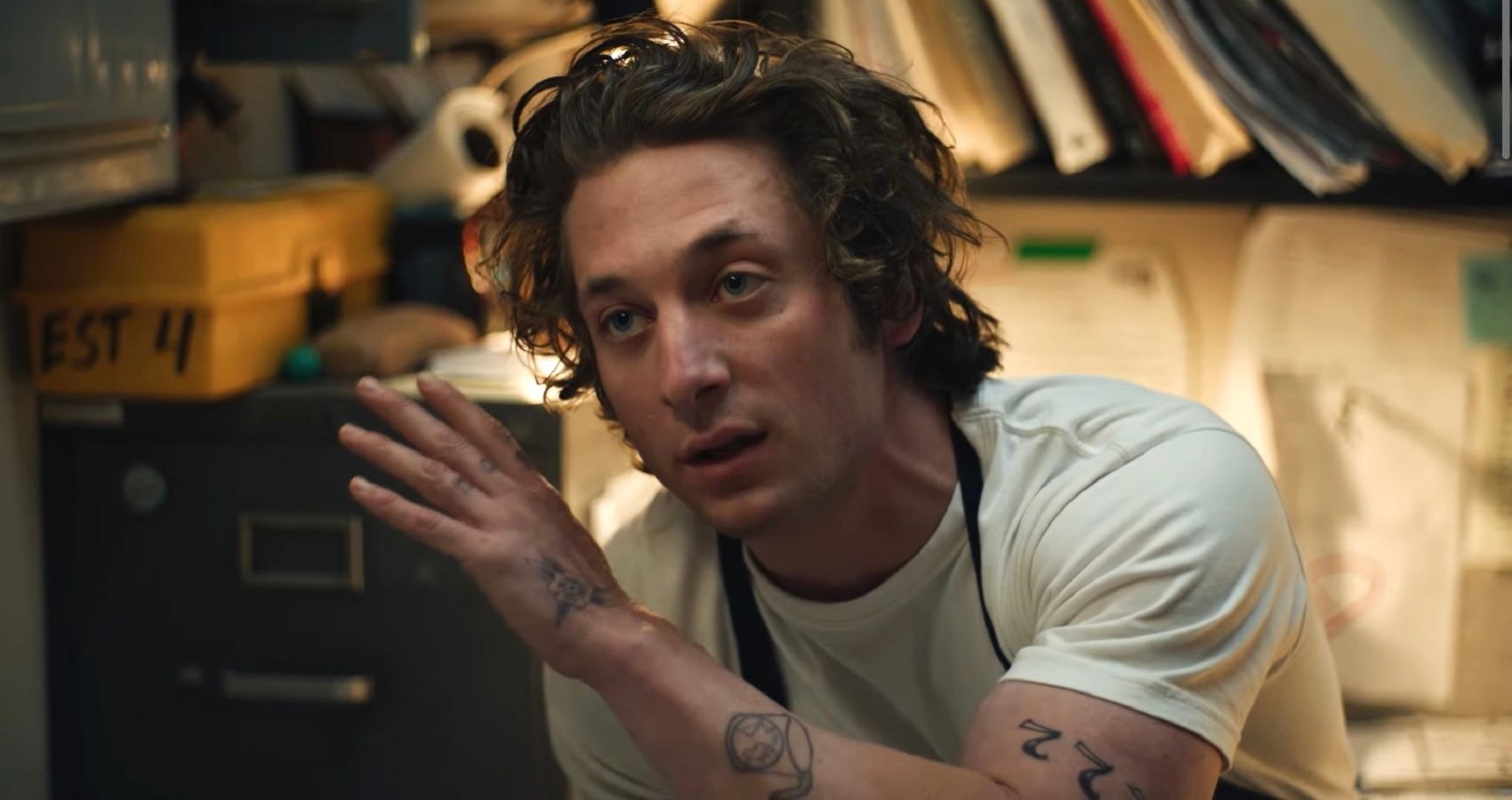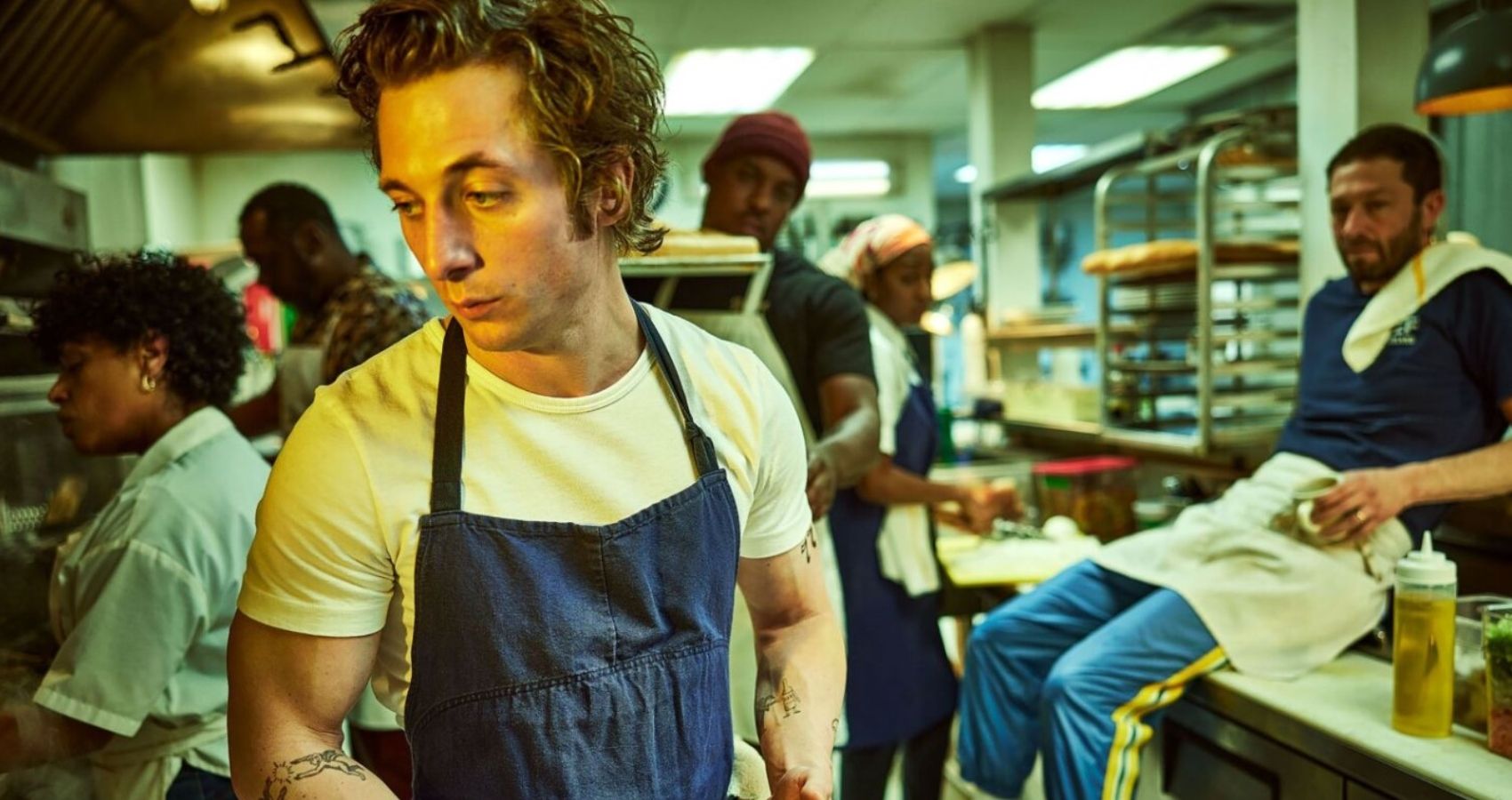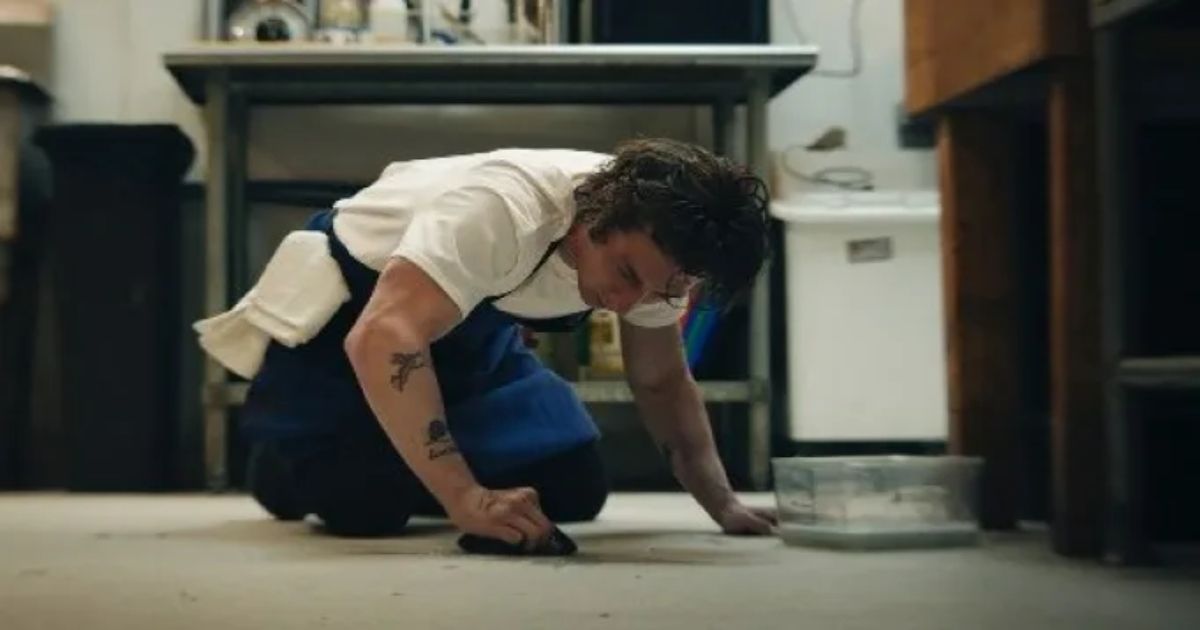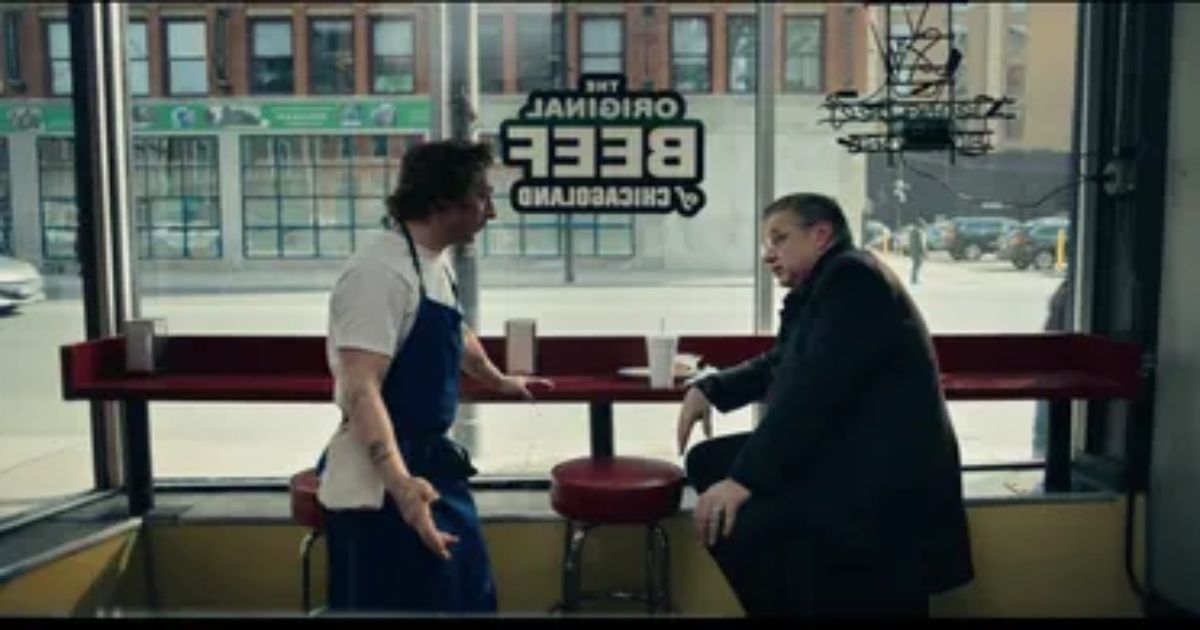The Bear, FX on Hulu’s new overnight success, has caused a ripple of sensation across the internet since its premiere last month. Released in a rapid splurge of eight half-hour episodes, the show about a struggling Chicago sandwich shop is as intense as any Safdie brothers film. At a time when every series feels like it’s gone on for a season too long, The Bear’s rapid-fire ferocity is what makes it so extraordinary.
The series stars Jeremy Allen White, who viewers may recognize from his role as Lip Gallagher on Shameless. Once again, Allen returns to the screen as a hustling Chicago native, only this time in a much darker, more concentrated role that might be his best yet. Allen plays Carmen Berzatto, a Michelin-star chef who takes over his family’s sandwich shop following his brother’s suicide. As “Carmy,” Allen offers us a performance that is both callous and vulnerable, always bursting at the seams with frenetic anxiety. Carmy is an obsessive perfectionist hellbent on modernizing Original Beef of Chicagoland’s kitchen, but seems unable to find emotional clarity within his own life. He immerses himself entirely into the restaurant, enmeshing its volatility with that of his own mental state.
The Bear paints an unbelievably authentic portrait of not just Carmy’s emotional struggle, but of the madness of the restaurant business at large. The show gives us a never-before-seen look into the huge toll such a world takes on its workers, prompting burnout at every turn. However, The Bear is far from a nihilistic show. Quite the contrary, it wears its heart on its sleeve, showing how the professional kitchen can be as much a place to grow within and from the suffering it has caused. Carmy's journey is thus both deeply personal and a microcosm for the food-industry struggle at large.
The Rhythm of Chaos
Within the first five minutes of The Bear, it becomes clear to viewers that we won't be given many breaks throughout the series. The show eats, breathes, and sleeps - scratch that one - chaos. From its rapid-fire dialogue, kitchen catastrophes that seem to occur every five minutes, and with the general ambiance of claustrophobia and stress, The Bear is hardly a show to watch casually. Binging it might result in certain medical trauma.
As if a physical symbol of this idea, the series opens with White confronting a metaphorical "bear" head on, in a scene that is no less panicked because it is dreamy. And then: the clock strikes; he is brought back to reality. Running to and fro to fetch ingredients, ancient video games that have never been unplugged, chiming in his ears, unkept finances, and constant, directionless screaming. The camera moves in jaunty close-ups on all of these things, capturing the scattered focus that usurps all perspective in this place.
A World of Clashing Visions
If there's one thing that Carmy's shop needs to level itself up, it's cooperation and coordination. Two things. Unfortunately for Carmy, and for anyone who finds themselves in a leadership position at Chicagoland, like the talented young sous chef, Sydney, no one seems to see things the same way. A prominent theme of the show is the clash between modernization and efficiency versus tradition and the status quo. Carmy's outspoken "cousin," Richie, along with the majority of the restaurant's other staffers, would prefer to stick to the old way of things, how they were when Carmy's brother was running the shop. Yet Carmy continues to impose his idiosyncratic vision on the crew, often inspired by the high-end restaurant environments of his own past.
And yet, in the transformation of Chicagoland, we get the sense that it's more than just Carmy's ego that is at stake (not to say that's not a part of it). It's clear from the beginning that the restaurant is in dire straits, both financially and operatively. The kitchen is a relentless tangle of grudges, and mixed-up egos, the old always finding a way to clash with the new. The tension among the crew certainly appears to be greater than those within any cooking competition show - and they're supposed to be on the same team. Somehow, Chicagoland presses on, and if there's anything that unites its crew, it's their unwavering dedication.
No Life Outside the Kitchen
Who is Carmy outside of Chicagoland's walls? We are afforded very little of an answer. Indeed, the kitchen seems to be the only place where he not necessarily thrives, but simply exists. The few elements of Carmy's outside life we do receive amount to a deluge of missed phone calls from his sister, Sugar, and a few spare moments at home spotted eating a PB&J sandwich. He sports no interest in anything beyond Chicagoland, which appears to be as much of a coping mechanism as the result of intuitive passion. Carmy rarely smiles while he is at work - or ever. And yet, the restaurant is what keeps him alive. It is not unreasonable to assume that Carmy is struggling with depression, or that his brother's death has broken him in some way. In various flashback sequences, we also see scenes of the severe verbal abuse Carmy endured while working at an upscale New York eatery.
Carmy doesn't have time for romance. Or friends or family, it would appear. His work consumes him, just as The Bear consumes us. It is certainly jarring, but, in a way, unexpectedly cathartic.
Precarity is the Only Constant
The financial precarity of Chicagoland seems to loom constantly over Carmy and everyone else's heads. Indeed, this is part of what adds to what some have phrased as the "soul-crushing" element of the show. It seems that, regardless of whatever ways Carmy personally advances the restaurant, it will never make enough money to do more than tread water. Adding an endemic sense of futility to the show is the vast assortment of debts that Carmy's brother, Michael, left unpaid before taking his own life. It's revealed early on that Carmy owes $300,000 to their uncle, Cicero, a reality that both creeps up on and daunts over Carmy for the entirety of the show.
However, despite such circumstances, The Bear is in no way a despairing or hopeless show, nor a polemic on the restaurant industry. Despite the quickness of its pulse, it is its heart that beats the loudest. We never give up hope for Carmy, nor Chicagoland, nor some more unfavorable characters like Richie. The Bear doesn't need to drag itself out towards an insipid and soulless end - it is all an assortment of fast moments, each new one offering a slightly brighter light.



.jpg)

